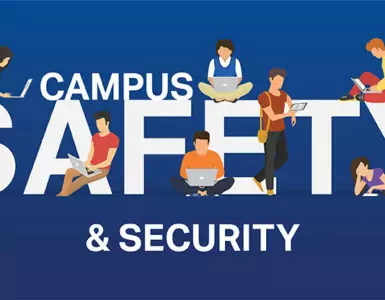Campus leaders, Title IX coordinators, and compliance officers are navigating a season of rapid change. With recent developments in Title IX regulations, the Stop Campus Hazing Act, and heightened Clery Act obligations, institutions are under pressure to update policies, enhance reporting, and ensure transparency. Here’s what’s top of mind this week.
Title IX: Reverting to 2020 Rules
On January 9, 2025, a federal court struck down the 2024 Title IX final rule, calling it unconstitutional. As a result, institutions are reverting to the 2020 regulations issued during the Trump administration. These rules emphasize procedural protections such as live hearings and cross-examination by advisers. While some 2024 elements, such as expanded protections for pregnant students, may still be voluntarily included, Title IX coordinators now face the challenge of aligning policies and campus training programs with the restored 2020 framework.
Hazing: A Compliance Priority Under the Stop Campus Hazing Act
Hazing has shifted from being a cultural issue to a compliance mandate. The Stop Campus Hazing Act (SCHA), signed into law in December 2024, officially amended the Clery Act and introduced new federal requirements for institutions:
- January 1, 2025: Institutions began tracking hazing incidents for Clery compliance.
- June 23, 2025: Policies and prevention programs were required to be in place.
- July 1, 2025: Schools began recording violations by student organizations.
- December 23, 2025: First Campus Hazing Transparency Reports must be published and updated at least twice a year.
Day before yesterday (August 18, 2025), HazingInfo.org expanded its national database to cover nearly 1,500 colleges and universities. This means hazing policies, reporting tools, and prevention resources are now just a few clicks away for students, parents, and the public. Institutions must ensure their information is accurate and their prevention efforts visible.
Clery Act: Expanded Obligations
With the Stop Campus Hazing Act now integrated into the Clery Act, hazing is a reportable crime alongside sexual assault, stalking, and dating violence. Campus Security Authorities (CSAs) must be trained to recognize and report hazing incidents accurately. Annual Security Reports (ASRs) will be scrutinized not only for compliance but also for clarity and accessibility.
The Role of Technology in Compliance
As compliance responsibilities expand, institutions need efficient systems to track training, policies, and reporting. This is where emPower’s learning portals make a difference. Our platform enables campuses to distribute and collect e-signed policies, maintain electronic live records of training completion, and verify policy acceptance compliance in real time. These capabilities not only reduce administrative burden but also strengthen an institution’s ability to demonstrate compliance during audits or investigations.
Final Thoughts
Title IX coordinators and campus leaders are facing a demanding year. Between reverting to older Title IX rules, implementing hazing prevention measures, and updating Clery Act reporting, the compliance workload is heavier than ever. By combining clear policies, proactive training, and reliable technology, institutions can stay ahead of regulatory requirements and, more importantly, foster a safer and more accountable campus environment.
About emPower eLearning
emPower helps colleges and universities meet compliance requirements with tailored eLearning solutions, a robust compliance training library, and administrator-friendly tools for tracking, reporting, and policy management.






